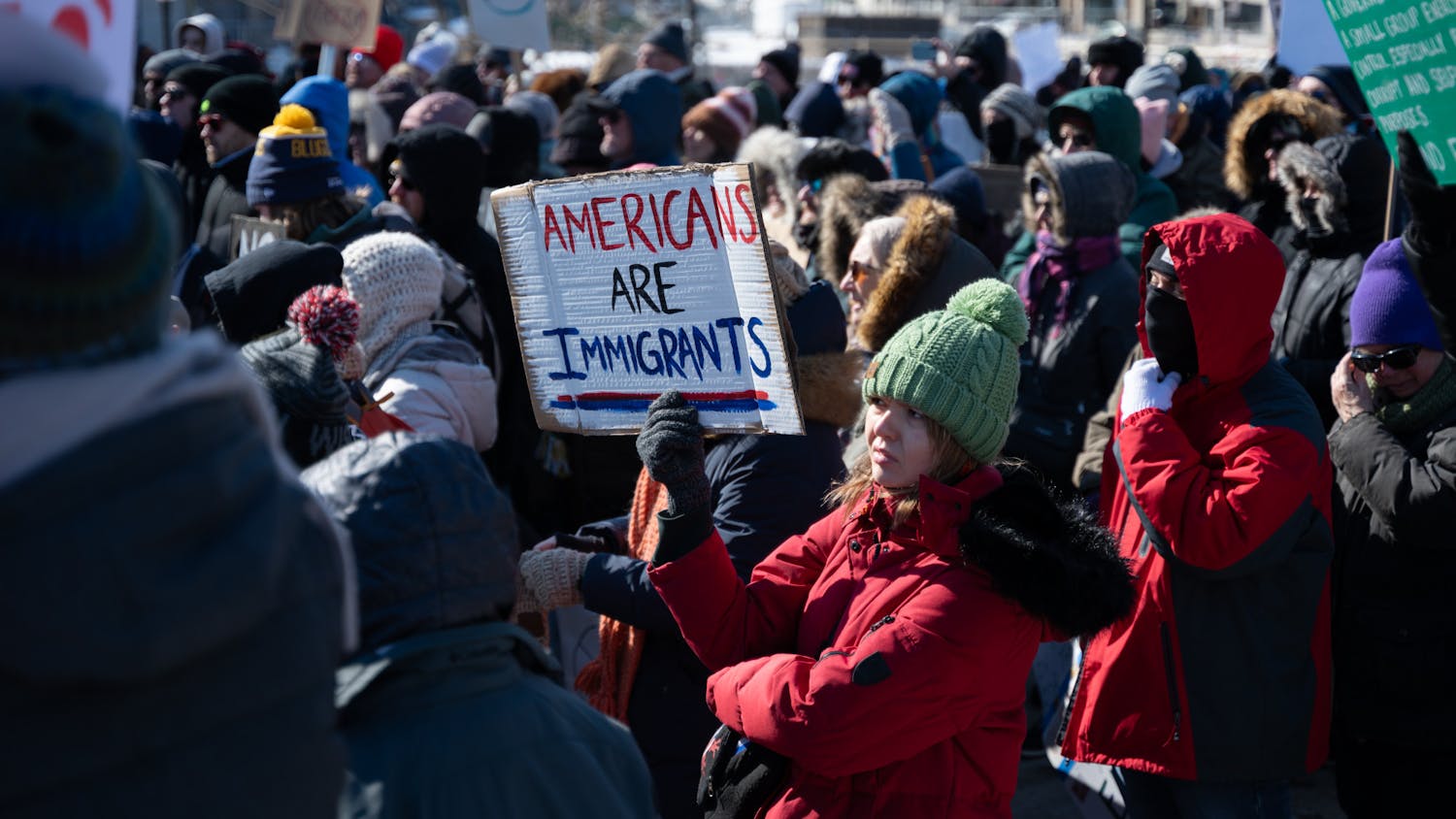In an effort to shed light on the diversity of the Native American students, Madison community members and members of Native communities statewide came together Saturday to celebrate indigenous cultures at the 49th annual Spring Powwow, hosted by UW-Madison student group Wunk Sheek.
The free event featured dancers from many tribes across the state, as well as five intertribal host and co-host drum circles. In addition to watching or dancing, guests could shop for jewelry, artwork and clothing at vendors’ booths, sample Native foods and partake in traditional crafts.
The powwow is an opportunity for Native and non-Native students alike to engage with Native American culture, according to Michael Williams, Wunk Sheek co-president of Traditional Affairs.
For Native students, Williams said hosting the powwow is an important way to connect communities and celebrate shared traditions.
“In a cultural sense, we do it because we want to bring a powwow to this campus,” Williams said. “This is something that not everyone gets to experience, and that is the role of Wunk Sheek — to let people experience Native culture on a white campus.”
Mariah Skenandore, outreach director and co-president of Wunk Sheek, said she hoped the powwow could be a powerful learning experience for non-Native students as well.
“A lot of times at UW, there is a lack of cultural competency, especially when it comes to indigeneity and things related to Native people,” Skenandore said. “It’s really helpful for students to be able to come first-hand and see the beauty of the culture.”
To facilitate that cultural learning, Wunk Sheek scheduled a free bus to transport students between the UW-Madison campus and the powwow.
“I want students to learn about our culture and what it looks like, and sounds like and feels like — because you can feel the drum, it’s not just a sound,” Williams said.
Williams also hoped that the powwow would showcase the diversity of tribes across the state.
“Although there are a lot of similarities and we have this powwow where tribes come together, we’re not all one tribe, we are not all one people,” he said. “You can’t be saying ‘the Indians,’ when we’re different people with different histories and different cultures.”
The powwow was sponsored by Wunk Sheek with funding from the Associated Students of Madison, as well as through contributions from individual donors and the Ho-Chunk tribe, on whose land the event was held.






